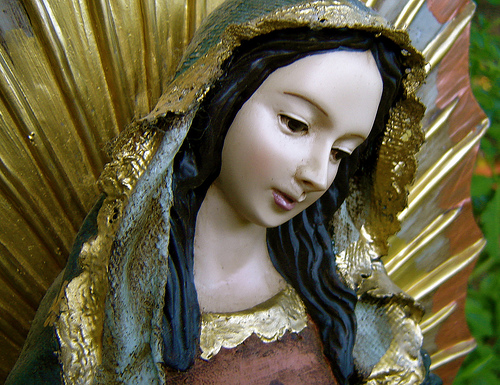One Christmas years ago, when our middle children were 3 and 4 years old, my family and I visited my parents for a few days. I slept late on Saturday morning (I was on vacation) and awoke to the sound of the television, my daughters’ giggles, and my father’s very loud guffaws.
I went downstairs to find my children snuggled up with their Grandpa watching a Roadrunner cartoon. I sat down. Wile E. Coyote set a trap using Acme products.
Roadrunner didn’t fall for it. Wile E. Coyote checked on the trap to see what was wrong with it
and it blew him up.
All four of us laughed.
“It’s the myth of Sisyphus, don’t you think?” Dad said. “But lots funnier.”
“I was thinking it’s a commentary on our dependence on technology,” I said. “He’s a coyote. Why can’t he just pounce on that sucker and eat it instead of using all the Rube Goldberg Acme products?”
“Shhhh,” said the children. They loved the colors, the action, the explosions. They couldn’t read the signs Roadrunner held up, but they still laughed. Not just because we did, but because it looked funny. Philosopher, naturalist, and young children, Roadrunner spoke to all of us.
So. What does this have to do with the virgin birth narrative? Here goes: The Gospel writers Luke and Matthew both wrote to diverse audiences. Their original hearers (the Gospels would have been read aloud to groups in a culture where books were so expensive to produce) were diverse in age, but also in their backgrounds.
- Some of the Jews would have known the Scriptures (what we call the Old Testament) in Hebrew.
- Others (a. Jews who had been raised in a Greek-speaking culture and b. Gentiles who had attended synagogue) would have known the same Scriptures from the Septuagint, the Greek translation of the Hebrew Scriptures.
- Finally, there were Gentiles who had come into the Christian community without any background in Judaism and little or no knowledge of the Scriptures in either language.
In the story of Jesus’ birth, Matthew cites, and Luke alludes to, the prophet Isaiah who told a nation under siege that the forces of evil would not win: “Look, the young woman (Hebrew almah) is with child and shall bear a son, and shall name him Immanuel (God with us.)” The Greek translation of this passage reads, “Look, the virgin (parthenos) is with child . . .”
Either way, Isaiah’s point, in 701 B.C., was that God had not abandoned Israel. The king to whom Isaiah spoke, Ahaz, was a royal screw-up. The people had every reason to believe that the siege of Assyria and Ephraim, teamed up together, would succeed. Isaiah’s declaration gave hope beyond the immediate failure; that the child about to be born and called Immanuel, “God With Us,” would show the nation that God had not abandoned them.
So, what does this mean for Matthew and Luke? And what does it mean for us?
Matthew, in his inimitable heavy-handed way, says, “Look! We’re going through the same thing with this damned Roman occupation that God’s people went through with the Assyrian occupation in the time of Isaiah [700 years before.] God was in charge then, provided a child, Immanuel, God with us (Good King Hezekiah) who saved God’s people. God is still in charge, despite the brutal occupation of Rome, and is saving us through a child, Immanuel (God with us) named Jesus (God saves).”
Luke employs more subtlety, but he tells the story in a way that will call his original audience to remember God’s faithfulness and recognize it in the birth of Jesus.
And that is Luke and Matthew’s point: God is faithful still. Whenever you oppose tyranny and oppression, even when it feels like you are losing, you are not alone. You are doing the Lord’s work. Whether you read Hebrew (almah, “young woman”) or Greek, (parthenos, “virgin”) does not matter to Luke and Matthew; they want Jew and Greek both to understand this. What matters is that you know you are not alone when you suffer under Roman occupation, or apartheid, or tribal warfare, or addiction, or whatever evil haunts your life. God has entered the world in Jesus, Immanuel, God with us. We are not alone.
So, here’s the question: When you have witnessed or experienced extreme injustice in the world, have you sensed God’s presence, or God’s absence? Do you have a specific story you can share with us?


